Frequently Asked QuestionS
What are the best plants for Denver’s climate?
In Denver, the climate would be considered semi-arid. We have cold winters, and hot dry summers. There’s a lot of fluctuations throughout the year, and it’s important to make the right choices when it comes to plants to withstand it all. Also something to consider would be “micro climates” which are certain areas of your yard prone to a certain climate, such as full shade area, or very hot from reflective heat, both usually caused by buildings. Soil quality is also something to consider.
The best plants for Denver are generally native to Colorado, and who wouldn’t want to bring the mountains of Aspen to your Denver home? Some examples of plants suitable for Denver are
-Blue spruce
-Coneflowers
-Daylilies
-Russian Hawthorn
-Sedums
-Russian Sage
-Columbines
When is the best time to plant in Denver?
Our winters are quite unique in the way of being reasonably unpredictable, and receiving loads of heavy wet snow late into winter and creeping as far as May isn’t unusual. Freezing temps are not rare up until June, either. Because of this, it is best to wait to plant your annual plants until at least Mothers Day or later, depending on the forecast.
Perennials can withstand some cooler temperatures and can be planted after the threat of heavy snow has passed. They benefit greatly from the extra moisture which allows them to develop their root systems, making them healthy and able to withstand the hot dry summer.
Trees and shrubs are best planted in the fall, so they’ve got some time to establish their root systems before winter creeps in. This also gives them a better start to preparing to thrive during the next summers’ heat.
How often should I water my lawn and plants in Denver?
Most lawns will benefit from receiving at least 1-1.5 inches of rain per week. This equates to running your irrigation system for 2 to 3 days per week. The best way to water your lawn is infrequently but deep, rather than frequently and shallow. Doing this will encourage the roots of your grass to grow deeper, also reducing water waste during this process.
Newly planted trees and shrubs will need a bit of extra water during their first year. We recommend watering deeply once or twice a week. This will encourage the best root growth for the new plant, helping it fully establish itself. It is also beneficial to give your new plants a bit of extra water in the winter, if there are large gaps between snowfalls. Mature trees and shrubs may only need extra water during dry periods.
Perennials all depend on their specific water requirements to maintain proper health. Generally however, it’s best to use the same principle of watering infrequent but deeply, about once or twice per week.
For your annual plants & vegetables, they will need the most amount of water. Depending on the water conditions and your gardens locations, you may need to water them daily or every other day. Water them deeply; if they’re in pots you’ll see water draining out of the bottom.
Since Denver is so arid and humid, our gardens greatly benefit from a thick layer of mulch to help retain moisture, as well as many other benefits. You can also group plants together in your landscape that have similar water requirements so you’re not overwatering. There are many different factors that can change the amount of watering your lawn and garden needs, such as excess sun or shade and soil conditions.
What types of soil are best for gardening in Denver?
Soil will ultimately depend on what kind of plant you are growing, they all have different preferences. The soil in Denver is generally classified as Clay soil, which brings plenty of challenges for many plants including root growth and water retention.
There are many ways to improve your soil conditions. One beneficial practice is amending your soil with organic material such as compost, aged manure or old leaves. This will improve soil structure, nutrient content, and drainage. You can also amend heavy clay soil with a bit of sand – however adding too much sand can create a cement like texture, and it does not provide any extra nutrients for the plants.
Another way around the clay soil is to build or purchase raised beds. This way, you have full control over the area you’re working with. There are many different techniques of filling the beds with layers of logs, compost, dirt and more.
You can work with your existing soil conditions by choosing plants that thrive in it. Native plants are generally a good choice and they are already adapted to our native soil.
What is the best way to prevent weeds from taking over my garden?
Weeds are inevitable and tackling them in the right way will give you the best results for a fair amount of effort. With proper techniques and diligence, you’ll be able to easily maintain a nearly weed free garden.
Here are some ways to get ahead and stay on top of weeds in your garden this season-
Laying down thick mulch in your garden beds is a great option. Most common is chipped bark mulch, dyed mulch, and even pine needles & leaves. The mulch works to prevent the sunlight reaching the soil level & germinating weed seeds. It also helps retain the moisture level in the soil below, as well as eventually breaking down & improving your soils structure. Mulch works best with a thick layer of at least 3 inches, with no weed barrier. This prevents the mulch from breaking down into soil on top of the mat, and depleting the soil below of proper nutrients. It is easier without weedmat to “turn” the mulch and add a fresh layer every year or so.
Another option for weed prevention is installing a weed barrier. Sometimes called landscape fabric, this functions as a physical barrier between the existing earth & the material on top. We only recommend using weed barrier with rock type mulch, such as crushed breeze fines, to larger river rocks. With the loose rocks over the barrier, you are able to remove any accumulated dirt from the bottom with a high powered blower, which will prevent weeds from taking hold.
Tried and true method, fully organic, is hand weeding. This is the most effective way to really make a difference keeping your garden free of weeds. It is best done after it’s rained, or the day after running irrigation system. The weeds will pull out much easier, the trick is to get the whole root. Some weeds are harder than others such as bindweed and creeping bellflower. They spread rapidly and have complex root systems that can be tackled organically by regularly removing them before they flower, and as much root as possible. They will eventually run out of energy without the leaves, and patch sizes should reduce.
Properly placing plants in your garden to reduce excess sunlight on the ground between plants can be a good way to prevent weeds. However, you don’t want to plant too closely, and take in consideration the mature size of your desired plants and space appropriately.
Preventing weeds before they have a chance is also an effective method. Always remove weeds before they flower or turn to seed. You can also use organic pre-emergents which prevents any new seeds from germinating.
What type of fertilizer should I use in Denver?
The exact type of fertilizer for your lawn and garden will depend on your specific outdoor space. Generally for the lawn, you will want a balanced fertilizer that has an equal amount of nitrogen, phosphorus & potassium, or N-P-K. This helps to ensure that your plants receive nutrients that are necessary for healthy growth.
Even with a balanced fertilizer, you may want to think about using an organic fertilizer, which can provide a slow and steady release of nutrients to improve the health of your soil. Organic fertilizers, like compost, fish emulsion & bone meal can help promote health plant growth, while also adding organic matter to your soil.
Try to apply fertilizers at the right time, and the correct amount to prevent environmental damage and over application. It’s best to fertilize in the spring and fall when plants are currently growing, and to read carefully and follow the manufacturers written instructions for the amount & method of application.
It’s a good idea for your soil to be tested periodically to determine its nutrient content and pH level. This can help you find a fertilizer that’s right for your lawn & garden, this ensures they’re receiving the nutrients needed to thrive. Soil testing is done through Colorado State University soil, water & plant testing lab.
How can I prevent pests and insects from damaging my plants in Denver?
Protecting your plants from damage from pests and insects will benefit both the plants & your wallet. Keeping them healthy will give them the best chance to fight off any pests. Ensure they are well watered, properly fertilized and pruned when needed. Rubbing branches can cause open areas which is an open door for pests. Check your plants frequently for signs on damage so you can take action quickly.
Also consider using natural predators, like ladybugs and praying mantis. These are available online & many local nurseries may carry them.
Consider rotating your crops every year in your vegetable garden to prevent the buildup of soil-bourne pests & diseases. You can also grow certain plants nearby each other to either attract or repel pests. Marigold flowers are frequently used to deter nematodes and even rabbits, and dill planted nearby cucumbers attract insects that prey on the cucumber beetles.
There are plenty of organic methods used throughout the garden for pest control. Need oil, insecticidal soap & diatomaceous earth work effectively, which have a low impact to the environment and beneficial bacteria.
What are the best annuals and perennials for Denver gardens?
There are many that thrive in Denver’s climate. An annual is planted once a year in early summer, and die over winter and will need to be replanted. Some, like snapdragons, can resend themselves & they will come back the next summer. Perennials will endure through the winter, either being pruned in fall or left up for winter interest. Denver is in the 5b climate but can be flexible depending on certain conditions.
You will have many choices of annuals for your garden in Denver. Take into consideration the amount of sunlight the area receives and what kind of soil the plant prefers. Some examples are petunias, cosmos, zinnias, & marigolds.
Denver offers a variety of different perennials for your garden. It will depend on what light requirements the plants have to determine the best area of your property for each plant choice. Also consider the mature size of the plant, and plan accordingly. Russian sage for example gets very large but easy to keep a manageable size with heavy cutbacks. Salvia (May Night) is a wonderfully hardy perennial but does require deadheading for blooms through the summer. Boxwoods are great but make sure they’re planted in a shadier spot. There is a large offering of ornamental grass choices, from large & bushy to compact & upright. You are only limited by your local nursery’s inventory and your creativity to build a beautiful perennial garden.


